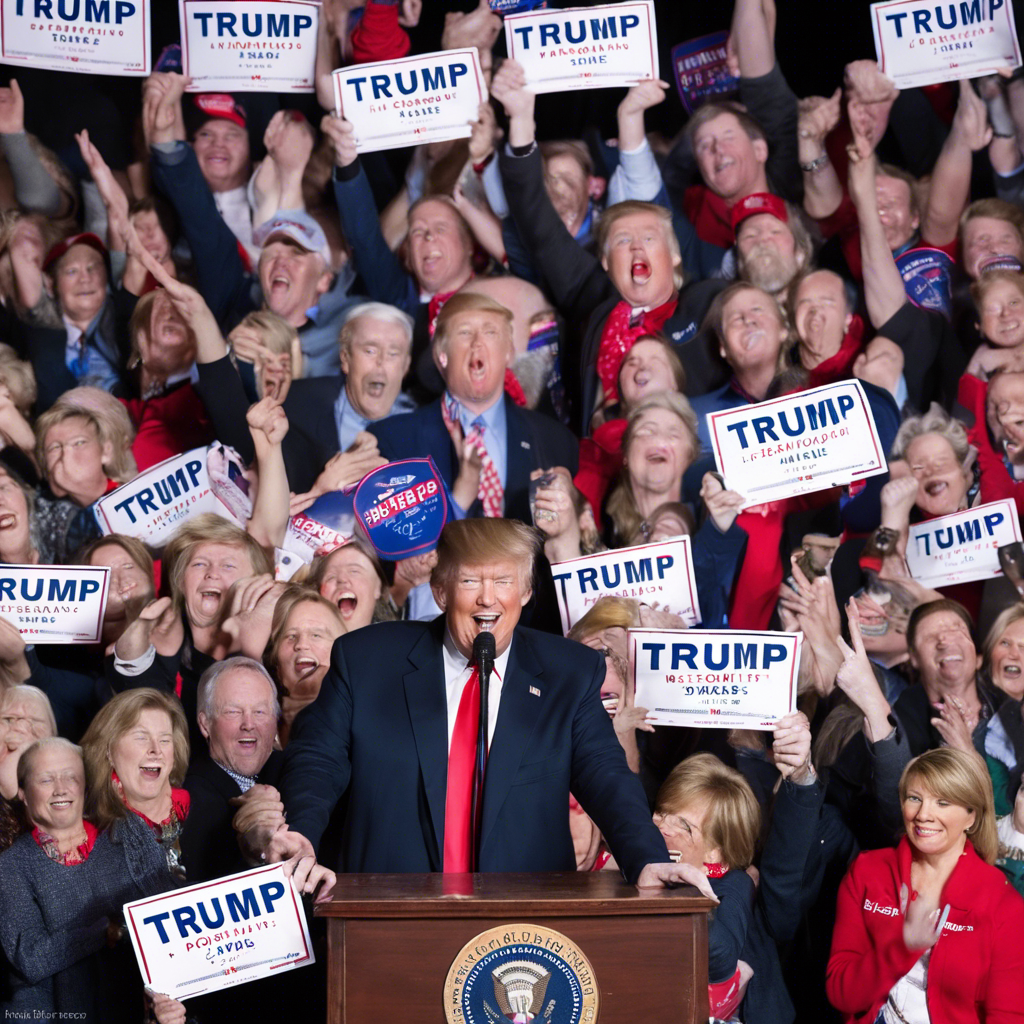Trump Triumphs in Iowa Republican Caucuses, Solidifying His Hold on the Party

Former President Donald Trump secures a resounding victory in the Iowa Republican caucuses, signaling his continued dominance within the party and setting the stage for his bid to secure the GOP nomination for the third consecutive time.
Donald Trump’s victory in the Iowa Republican caucuses has reaffirmed his position as the leader of the party and showcased the unwavering support he continues to enjoy from Republican voters. Despite his unconventional campaign, which included skipping primary debates and avoiding traditional retail politicking, Trump secured an unprecedented margin of victory in Iowa. The results have significant implications for the GOP nomination race and highlight the challenges faced by his rivals, Florida Governor Ron DeSantis and former South Carolina Governor Nikki Haley. Here are six key takeaways from the Iowa GOP caucuses.
“Very smart, very capable people”: Trump’s message to his primary opponents
In a departure from his usual nicknames and insults, Trump congratulated his Republican rivals, DeSantis, Haley, and biotech entrepreneur Vivek Ramaswamy, for their performances in the Iowa caucuses. He described them as “very smart people, very capable people.” However, his message was clear: it is time for his primary opponents to step aside and unite behind him. Ramaswamy promptly ended his campaign and endorsed Trump, further narrowing the Republican field.
A three-person race, but Trump remains well ahead
Despite the presence of DeSantis and Haley as strong contenders, Trump’s victory in Iowa establishes him as the clear frontrunner. With over 50% of the vote, Trump has a significant lead over his rivals. DeSantis and Haley, while vowing to continue their campaigns, face an uphill battle in catching up to Trump’s popularity. The one-on-one Trump-versus-somebody primary race that eluded the GOP in 2016 is yet to materialize this year.
Trump’s broad support base makes him hard to beat
Entrance polls reveal the breadth of Trump’s support across key Republican constituencies. White evangelical Christians overwhelmingly backed Trump, reflecting his strong appeal to this group. College graduates were split among Trump, Haley, and DeSantis, but Trump dominated among those without a college degree. Haley, on the other hand, performed well among those who identified as moderate or liberal, indicating potential strength in a general election matchup with President Joe Biden. However, she still has work to do to gain traction within the Republican primary electorate.
Haley’s bid to stop the “Trump-Biden nightmare”
As the race shifts to more favorable territory for her, Haley positioned herself as the antidote to a Biden-Trump rematch. She argued that the majority of Americans disapprove of both presidents and presented her campaign as “the last best hope of stopping the Trump-Biden nightmare.” While congratulating Trump on his victory, Haley emphasized the shared shortcomings of both Trump and Biden, highlighting her vision for a better future for the country.
DeSantis vows to continue his campaign
Despite finishing behind Trump in the Iowa caucuses, DeSantis remains determined to press forward with his campaign. However, he faces significant challenges, including polls showing him trailing behind Trump and Haley in New Hampshire. DeSantis’ prospects may depend on external factors, such as Trump’s upcoming trials or potential missteps by Haley. His decision to prioritize South Carolina, Haley’s home state, highlights its importance in shaping the race’s trajectory.
Another blow to Iowa’s caucuses
DeSantis’ distant second-place finish in Iowa underscores the diminishing influence of local officials, activists, and traditional campaign efforts. Despite completing the “full Grassley” by visiting all 99 counties in Iowa and receiving the endorsement of popular Governor Kim Reynolds, DeSantis was unable to surpass Trump’s overwhelming support. The results highlight the nationalization of presidential nominating contests and the waning significance of local factors in determining outcomes.
Conclusion: Donald Trump’s decisive victory in the Iowa Republican caucuses solidifies his hold on the party and sets the stage for his bid to secure the GOP nomination for the third consecutive time. The results underscore the challenges faced by his primary opponents, Ron DeSantis and Nikki Haley, as they attempt to gain ground against Trump’s unwavering support base. As the race moves forward, the dynamics between these candidates will continue to shape the Republican Party’s future and its chances in the 2024 presidential election.

